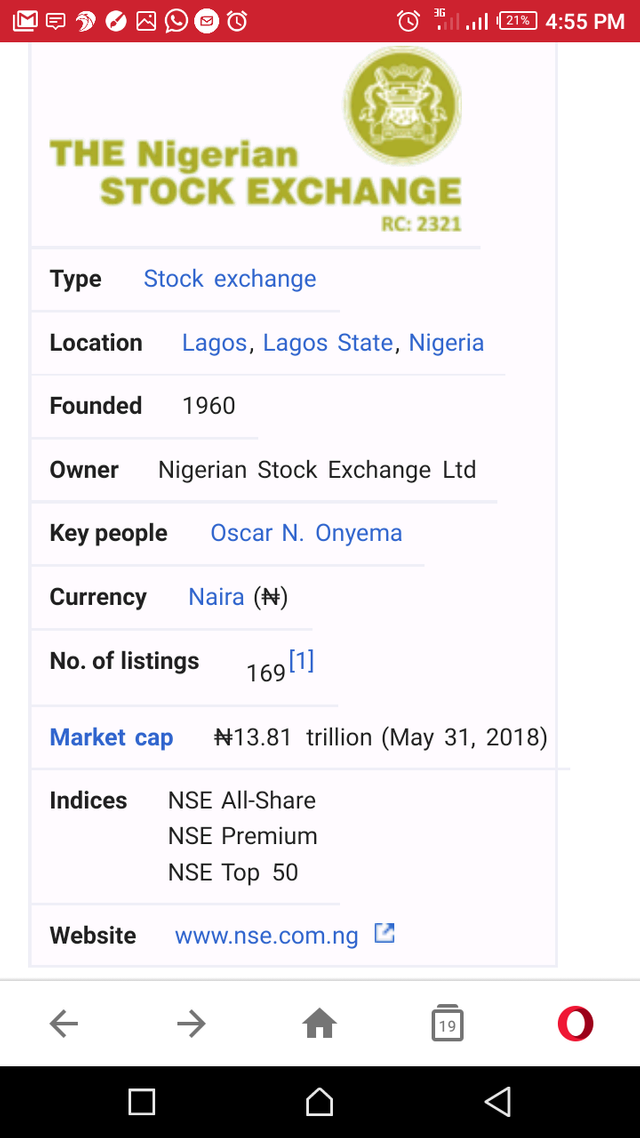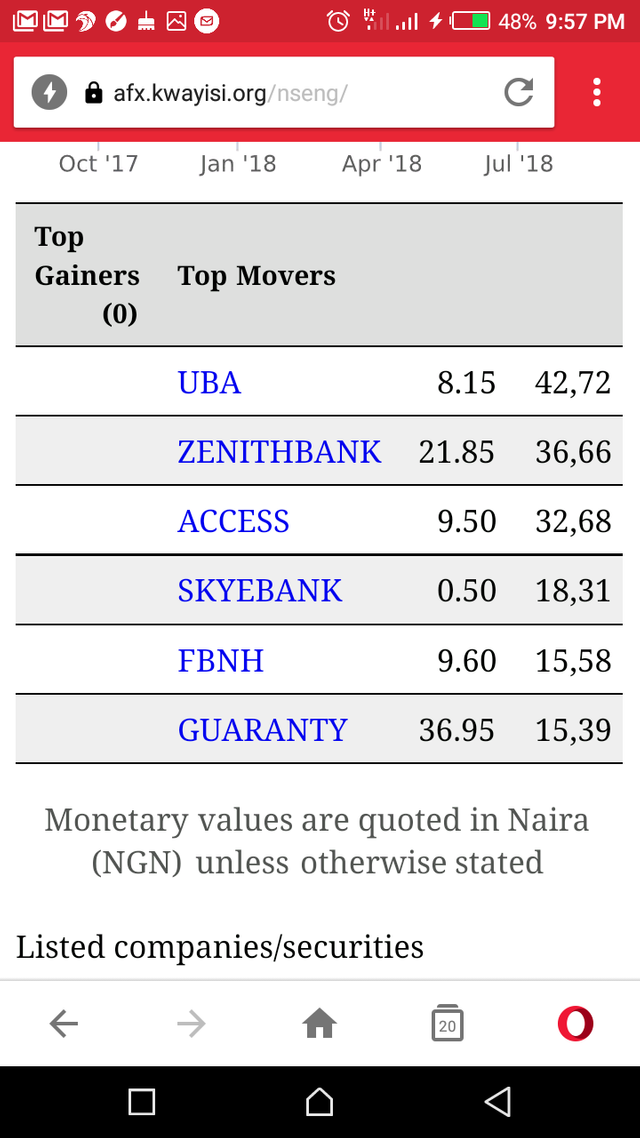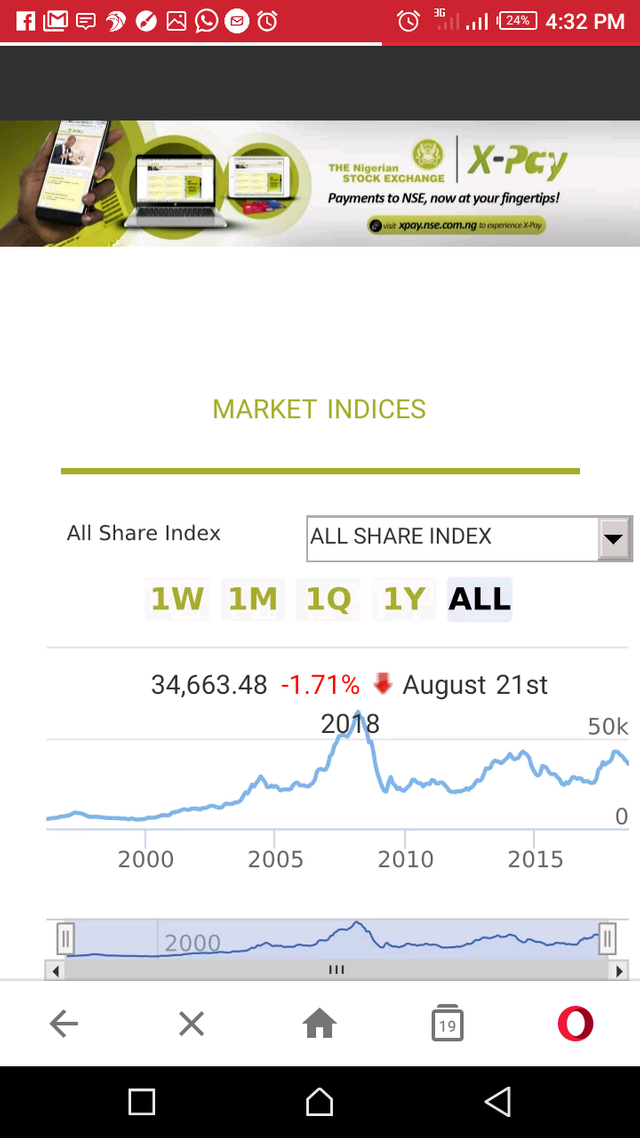NIGERIA STOCK EXCHANGE
The stock market is where you can buy, sell,and trade stocks any business day. It's also called a stock exchange. Stocks allow you to own a share of a public corporation. The stock price is based on the corporation's earnings. If the company does well, or even if everyone thinks the company is going to do well, the stock price goes up. Also, many companies give a dividend payment each year to the stockholders, which provides extra value.
Why Companies Sell Stocks?
Stocks are how companies get funded to grow larger. Usually, when someone wants to start a business, they pay for it with loans or even their credit cards. Once they grow the company enough, they can get bank loans, or also float their bonds to individual investors .
As at May 31, 2018, it has 169 listed companies with a total market capitalization of over ₦13 trillion. [1] All listings are included in the Nigerian Stock Exchange All Shares index . In terms of market capitalization, the Nigerian Stock Exchange is the third largest stock exchange in Africa.

Pricing
The Nigerian Capital Market was deregulated in 1993. Consequently, prices of new issues are determined by issuing houses and stockbrokers, while on the secondary market prices are made by stockbrokers only. The market/quote prices, along with the All-Share Index plus NSE 30 and Sector Indices, are published daily in The Stock Exchange Daily Official List, The Nigerian Stock Exchange CAPNET (an intranet facility), newspapers, and on the stock market page of the Reuters Electronic Contributor System.
Regulation
The NSE is regulated by the Securities and Exchange Commission, which has the mandate of Surveillance over the exchange to forestall breaches of market rules and to deter and detect unfair manipulations and trading practices.[3] The exchange has an automated trading System. Data on listed companies' performances are published daily, weekly, monthly, quarterly and annually.

Functions of Stock exchange:
Continuous market for securities
The Investors are able to invest in good securities and in case of any risk, it enables people to switch over from one security to another. So stock markets provides a ready and continuous opportunities for securities.Evaluation of securities
It the stock exchange, the prices of securities clearly indicate the performance of the companies. It integrates the demand and supply of securities in an effective manner. It also clearly indicates the stability of companies. Thus, investors are in a better position to take stock of the position and invest according to their requirements.

Mobilizes savings
The savings of the public are mobilized through mutual funds, investments trusts and by various other securities. Even those who cannot afford to invest in huge amount of securities are provided opportunities by mutual funds and investment trusts.Healthy speculation
The stock exchange encourages healthy speculation and provides opportunities to shrewd businessmen to speculate and reap rich profits from fluctuations in security prices. The price of security is based on supply and demand position. It creates a healthy trend in the market. Any artificial scarcity is prevented due to the rules and regulations of the market.
BRIEF HISTORY OF THE MARKET
The Nigerian Stock Exchange ( NSE ) was established in 1960 as the Lagos Stock Exchange In 1977, its name was changed from the Lagos Stock Exchange to the Nigerian Stock Exchange.
